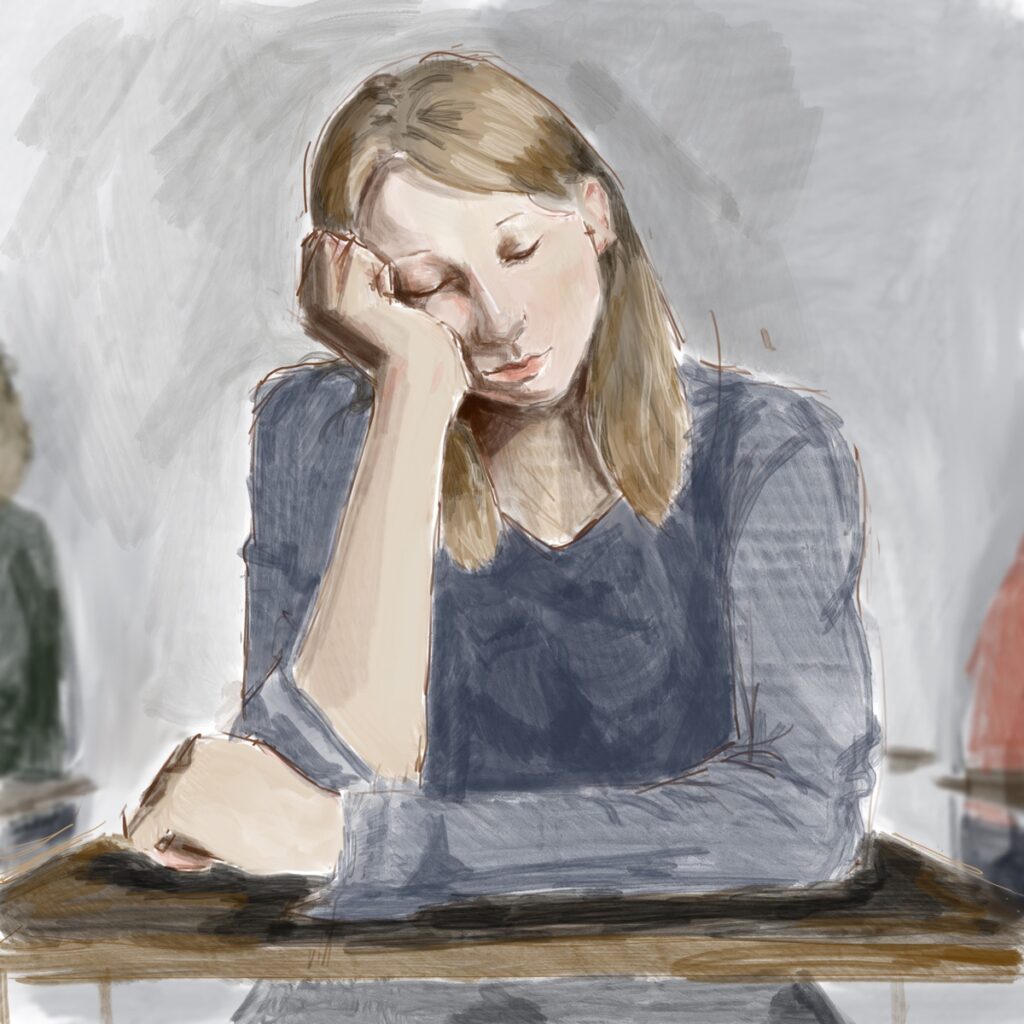
Busy college days seep into nights as Lewis & Clark students stay up working on homework or hanging out with friends, but despite how little sleep we get, mornings remain unforgiving. The next day, we might complain to our friends about how little sleep we got, creating a competition of who got the least amount of sleep. Most students barely reach the recommended seven to nine hours of sleep, and while competing for the fewest hours is harmful to the community, the real problems are not being addressed.
A college student not only has to worry about school and homework. For most, it is also necessary to keep a job to pay off student loans or groceries. Outside of school, students also have sports practices and club meetings to attend, decreasing the number of hours a student has to work on homework. If a student lives at home, they might also have to take care of family members or pets. On top of that, keeping up a good social life and maintaining one’s hobbies is also healthy. By the end of the day, there is barely enough time to eat and go to the bathroom, let alone sleep for 10 hours.
Students do not stay up to prove to their friends that they can go with the least amount of sleep. We do it so that we can maintain our school work as well as the rest of our lives. With or without the competitive dialogue between students, either way we will not be getting enough sleep, so why is talking about it bad?
Bringing awareness to the lack of time students have to live balanced lives is the only thing they can do about their situation. Sometimes coping means complaining, but ultimately moving on.
When a friend talks about the little sleep they got when you got less, your first reaction may be to lash out in jealousy and compare yourself instead of empathizing with them. Students do not talk about their sleep with malicious intentions, but the way that we interpret these complaints are up to us. Our first response might be “suck it up because we all are not getting sleep” or “do not make me feel bad about getting more sleep,” but both would be unfair.
Chronic sleep deprivation has deadly consequences such as heart attacks, high blood pressure and diabetes. It can also lead to drowsiness, mood swings and impatience. Whether we like it or not, our bodies demand sleep. It is not an option we can decide to turn off, but a necessity to continue living our lives. Even if you have to stay up all night finishing an assignment, one way or another that sleep will catch up to you, especially at the worst times.
Unfortunately, we live in a fast-paced and unforgiving world where we must juggle everything at once while somehow maintaining our mental and physical health. We all have different workloads, therefore we should not judge others’ actions based on our own experiences, but focus on our own health and how we can work to make ourselves better.
Subscribe to the Mossy Log Newsletter
Stay up to date with the goings-on at Lewis & Clark! Get the top stories or your favorite section delivered to your inbox whenever we release a new issue.

Leave a Reply